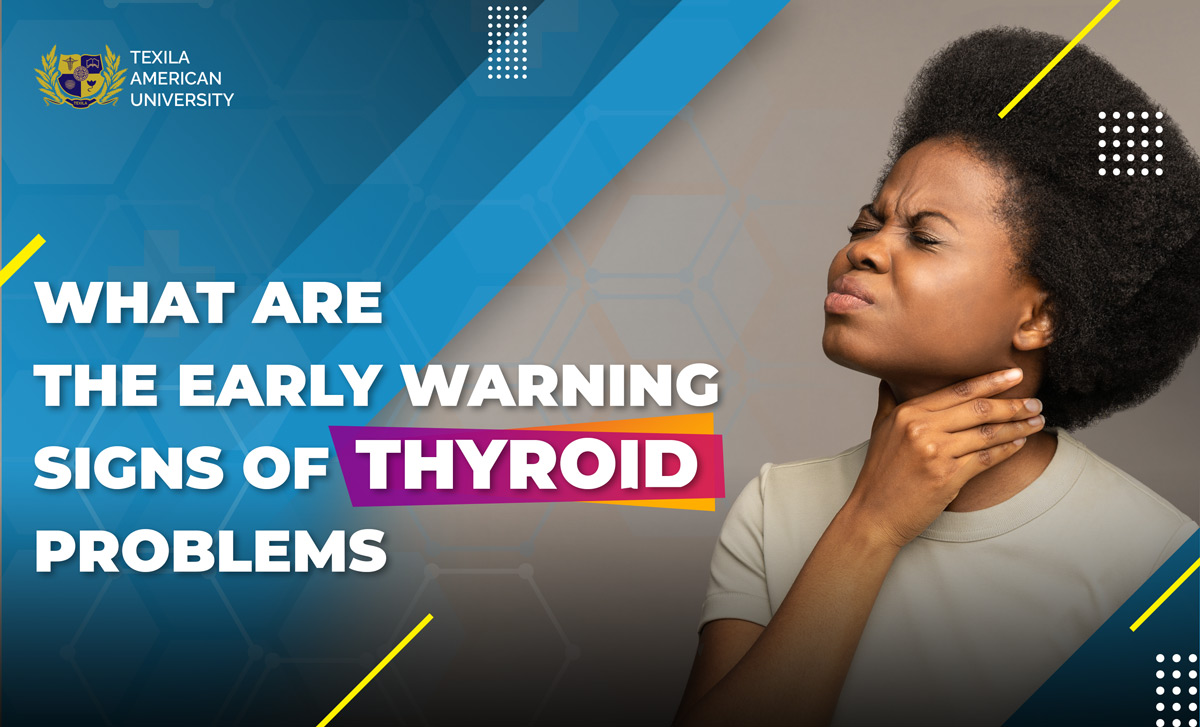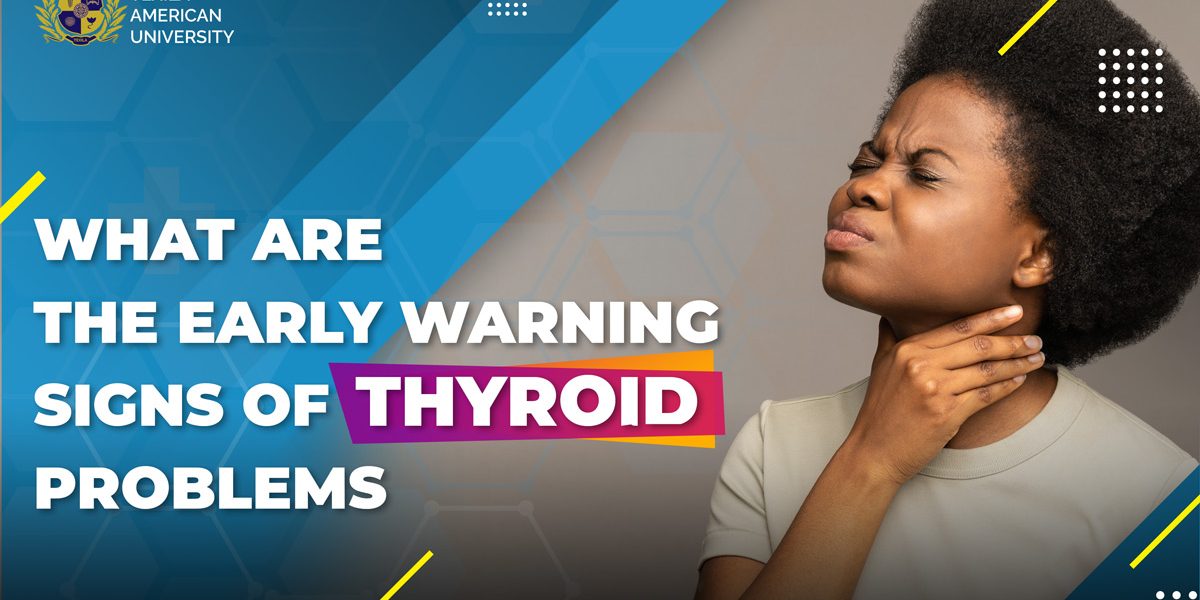Thyroid hormones keep you healthy in the neck area where your thyroid resides. This gland is responsible for health functions, including metabolism, heartbeat, mood, and brain. Women in the United States tend to suffer from thyroid disorders in 20 million more cases than men. Women experience thyroid conditions eight times more often than men. Thyroid issues are not fully understood, which can make diagnosis challenging. The following are some signs of thyroid problems.
How Is Thyroid Testing Performed?
The thyroid produces hormones that coordinate metabolism, energy, and growth. Many signs of thyroid disease can occur by excess or insufficient hormone production.
A Hypothyroid Condition
Thyroid hormones are low in this disorder. Excess weight could result in fatigue and a lack of energy.
Hyperthyroidism
Overproduction of hormones causes hyperthyroidism. It causes weight to drop and, if not treated, can result in excessive energy. It is necessary to keep an eye on any thyroid changes that might adversely affect. Suspecting the signs of thyroid disease, testing can aid in identifying the problem. Moreover, it may guide a treatment regime.
Signs of Thyroid Problems
Our thyroid gland is a crucial role in biological processes. It can contribute to many symptoms.
- An Elevated Heart Rate
Overactive thyroid glands are known to cause excessive heart rate. The increased blood pressure and elevated heart rate can be signs of thyroid disease.
Without palpitations, it is impossible to measure a resting heart rate. You can get assistance from health apps on many smartphones. Heart rates at rest are around 60 to 100 beats per minute. If you find that your resting heart rate is often above 80 beats per minute, speak to your doctor about it.
-
Feeling Tired All The Time
Similarly, if your heart rate or blood pressure is too slow, you may feel exhausted. These symptoms are usually associated with hypothyroidism. It is the first sign of thyroid problems. If you have trouble waking up in the morning or staying awake, you should seek medical help. We would like to know about your concerns, preferably in conjunction with others.
-
Anxiety
Anxiety is common among people with hyperthyroidism. Frequently, they feel angry without warning or experience emotional outbursts. If you are having difficulty interacting with people, due to life changes, if your mood has changed without any explanation, your thyroid is likely affecting your mood due to hormonal fluctuations.
-
Fatigue
The feeling of being exhausted can be a sign of many things, but when it occurs in conjunction with other health issues, it implies that too low thyroid hormone has developed.
-
Dry Skin
Dry skin generally occurs due to weather conditions. However, over time it might get worse because of the slowed metabolism. Similarly, weak or brittle nails indicate the signs of thyroid problems.
-
Weight Gain or Loss
It’s not uncommon for thyroid problems to result in weight gain or loss. Low thyroid function frequently results in rapid weight gain. In the absence of sufficient energy, it is impossible to burn calories to stay healthy.
Due to the oversupply of energy in your body, your metabolic rate will increase. The loss of weight may seem favorable at first because it is rapid. In this case, you lose weight without reason. Make sure you seek medical attention to ensure positive changes do not point to a health issue.
-
Body shivers
Nervousness can cause trembling due to high blood pressure. It can also present as shaky hands or difficulty in relaxing. Most people will dismiss shaky hands and body twitches as signs of exhaustion or nerves. If this happens frequently, thyroid testing might be necessary.
-
Feeling Chilly or Overheated
There is a direct relationship between blood pressure and circulation. People who feel chilled have low circulation. When others are feeling fine, you might reach for a sweater. It may be a sign of thyroid disease if your hands and feet become cold to the touch. Moreover, it might indicate hypothyroidism.
The symptoms of hyperthyroidism can be the opposite. It may cause hot flashes and excessive sweating.
-
Trouble Concentrating
When you are working on a task, do you often lose concentration? Whenever you find yourself forgetful or have trouble staying on track, you may have thyroid problems. You may also experience prolonged confusion.
The inability to remember where you parked your vehicle, enter the kitchen and wonder what you came for, or forget names and dates are common symptoms of thyroid dysfunction. There is a link between thyroid disorders and difficulty in concentration.
-
Hair Loss
A certain amount of hair loss is natural. Hair loss is a normal part of hair growth and shouldn’t cause alarm. Take action if you notice bald spots or thinning hair.
Regularly observe how much hair attaches itself to your brush. You are likely to lose a few strands while brushing. If it seems like you are losing more than you used to, you may be suffering from hyperthyroidism. Please consult us if necessary.
-
Digestive Issues
The thyroid can also manifest itself in this way at opposite ends of the spectrum. Hypothyroid patients often complain of constipation. Likewise, loose stools are more often associated with signs of thyroid problems.
There may be a connection between recent changes in digestion and hormonal changes. However, there are other possibilities.
-
Muscle Aches and Trouble Swallowing
A thyroid imbalance can cause muscle aches throughout the body. When your muscles ache without apparent reason, it may be a sign of thyroid disease. You may also experience muscle breakdown. Get in touch with your physician if you cannot tone your muscles.
Due to the thyroid’s position in the neck, the first muscle to feel these symptoms is usually the neck. Swallowing muscles are part of this group. You may be experiencing trouble swallowing if you are experiencing thyroid problems.
-
Changes in Menstrual Cycle or Sexual Performance
Sexual function is closely related to hormonal changes. PMS can lead to irregular periods, painful periods, heavier periods, and moodiness. These symptoms may indicate a malfunctioning thyroid. You must seek medical assistance for thyroid problems and treatments.
Additionally, you may have difficulty performing or enjoying sex. A decrease in libido, an inability to experience orgasm, or difficulty maintaining an erection can also be symptoms of thyroid disease.
Although these are uncomfortable topics to talk about, they are essential to keep in mind if we want to rule out thyroid disorders or additional factors that may cause them.
The Bottom Line
It is common to suffer from hypothyroidism. A few signs of thyroid disease are fatigue, weight gain, and cold chills. You may suffer from problems with your hair, skin, muscles, memory, or mood. Hypothyroidism is not the only cause of any of these issues.
However, if you experience a number of these symptoms, or they become worse or more frequent, consult your doctor so they can diagnose hypothyroidism. It is usually possible to treat hypothyroidism with inexpensive medications. You might be able to improve your quality of life if your thyroid hormone level is low.
Get rid of thyroid problems and recover with effective treatment by a qualified medical practitioner.


